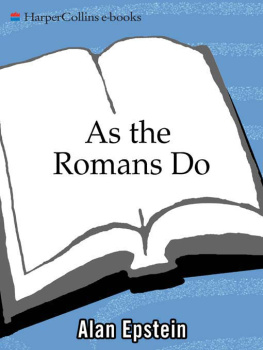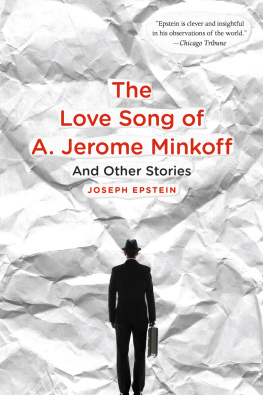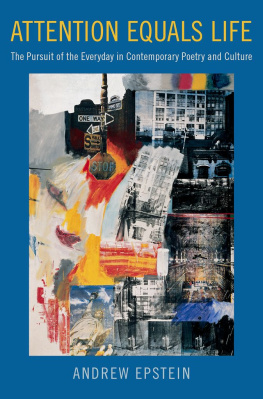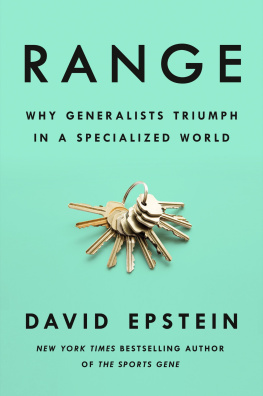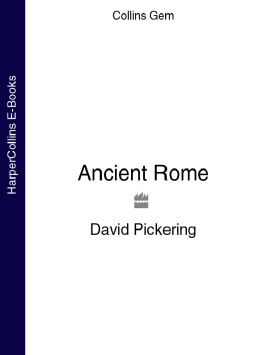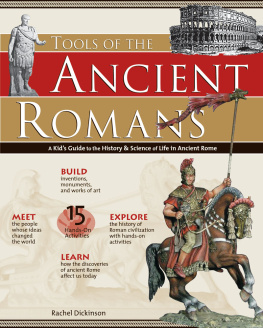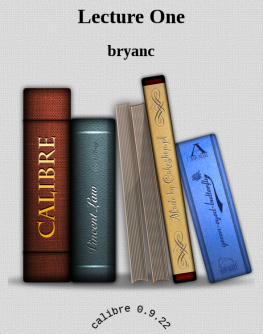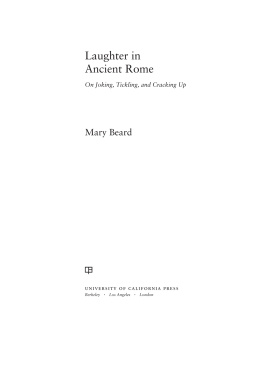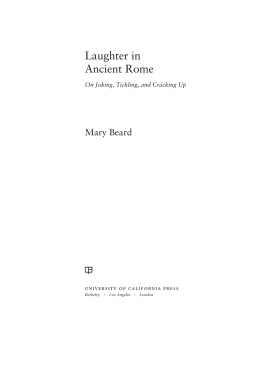I magine being three thousand years old. Suppose by some mysterious process you had managed to avoid the limitations of mortality, and year after year you keep going, adding more and more experiences to your life story until you have no choice but to repeat them because you have exhausted all possibilities.
You are the very essence of what it means to be human. You have had more than your share of victories and defeats, triumphs and tragedies, moments of glory and those of abjection, times when you wish you had never been born and times when you want to go on forever. You have loved and lost, have abandoned and been left behind, been rich and poor, skinny and fat, lived high on the hog and been forced to scramble for a few morsels of stale bread. You have seen it all, done it all, regretted it all, and then gone back and done it all again.
You are la citt eterna , Rome, the Eternal City.
To live in Rome is to have the capacity to endure everything life has to offermoments of timeless beauty followed by torrents of ugliness, the bella and the brutta mixed together in a bowl of hot minestrone that has left nothing out, that encourages you to live life from a completely different perspective. There is no more mature place on earth, and that maturity has something to teach you. Other cities may be older, but Rome still lives its past. Walk anywhere in the city or the areas surrounding it, and within minutes you are confronted with the remains of something that could be up to twenty-five hundred years old, that functioned and was vital to the daily life of the romani.
Rome is so old that its days of glory, when the empire stretched all across the Mediterranean and far into Europe, Asia, and Africa, ended well before the development of the Italian language. But by that time, history had already cast Rome in a leading role. Even if the stage on which it had starred had long since been taken down, its Latin culture was carried to the four corners of the earth by the establishment and dogged vitality of the Roman Catholic Church, whose theology came to dominate the everyday landscape of the world like no other institution. It was almost as if the Romans, in their infinite cleverness, came to see that they no longer needed to bear the costs of a far-flung empire but would invest their energy in a religion that would have more lasting effects. Rome would remain the capo, the boss, while its minions in nearly every other country would carry out the mission. Its position in the world secure (as it still is), the presence of the Church freed the romani to focus on and perfect the fine art of living well, leaving others to handle the historical heavy lifting while it devoted itself to the pursuit of pleasure.
The result is a strange anomaly, a sprawling metropolis that feels like a small town, simply because it no longer has any illusions of greatness. Been there, done that could be the motto of SPQR, Senatus Populusque Romanus, the name of the city government. Romans feel no need to prove themselves, to demonstrate to the world that they still have the ability to command respect, enact their wills, determine the course of history. Nobody cares about that any longer. The citys place in history is indelible, and now its inhabitants want to enjoy Romes advanced age in a manner that befits someone who is three thousand years old. Its as if, had you lived to reach this age and had you realized every one of the dreams of your youth, you had no more worlds to conquer; that your drive, your ambition, your desire to impress had long since been satisfied, and now you were unabashedly devoted to the enjoyment of lifes everyday pleasureseating well, looking good, devoting time to your family, and accepting the inevitable ups and downs that human existence has no choice but to offer.
This is Rome and the Romans who live in it, a city and a people of contrasts and effusion, a place that has lived so many different lives, in so many different epochs, that all it wants to do is exist in eternity according to the wisdom of what it has learned. The lessons are obvious. Life is to be lived passionately, excessively, publiclyin bars, restaurants, streets, and piazzasapplying charm and style mixed with a healthy respect for tradition. Romans have big appetites, for theatrical experience as well as exquisite food.
Ever since I came here for the first time two decades ago, Rome has been a source of endless fascination to me. It does this to people. I am by no means the first to fall under its seductive spell. It offers itself to the appassionato , one who is impassioned, as would a lover who invites his or her suitor to find out every way in which the beloved can be admired, reviled, explored, cursed, caressed, rejected, made love to, and abandoned. I have heard it said on numerous occasions that it is difficult to leave Rome, that once it penetrates your consciousness, all other cities, all other places, every other mode of living is just so lacking, leaving one with the feeling that, for better or worse, to live in Rome and to be a romano is to live at the apex of what is most profound about life; that what it offers in the way of beauty, of sensuality, of creativity, no other city can match. Even if New York is more avant-garde, Paris more elegant, San Francisco fresher and more naturally dramatic, Rome still holds first place when it comes to utter devotion to pleasure, and to the sheer ability to survive. Its stories are older, more truthful, more instructive and complex. Its spirit is still intact, and it provides a new wrinkle on the ancient quest for everlasting youth. As the Eternal City, Romes eternity lies in its wisdom. To live here now is to partake of the infinite, but to be in the present. You learn to separate yourself from questions of status, glory, ambition, and striving and live as the Romans doin the moment, with style, flair, and panache. The city has been host to myriad lives since the days many, many years ago when a nomadic tribe settled on the Palatine Hill, facing the Tiber, and became the city of Rome. Not one of these souls has managed to cheat nature. All have returned to the place from which they sprung. Ashes to ashes, dust to dust. In the meantime, since the same fate awaits everyone, why not enjoy the here and now while there is still the opportunity?
If you walk down the Via Veneto from the top end of the boulevard, which borders the Villa Borghese, you will encounter some of the most expensive shops, restaurants, and hotels in the cityin fact, in all the world. The Via Veneto was the throbbing hub of the fabled dolce vita of the fifties and sixties, when movie stars, playboys, jet-setters, and their entourages came to partake of a party they hoped would never end, as indicated by the plaque that pays tribute to Federico Fellini for his role in immortalizing the street in the film La Dolce Vita. The Via Veneto, although long past its glory days, still retains the patina of a golden age. Friends of ours wandered unknowingly into one of its many tony sidewalk cafs one glorious spring day, sat down and ordered two cappuccini, four orange juices, and four small pastries. They walked away sixty dollars lighter than when they had entered. The same breakfast would have cost them ten dollars standing upas the locals doat any nearby coffee bar, and been just as delicious.
As you make the sharp turn past the U.S. embassy and continue down to the bottom of the inclined street, where the Via Veneto empties into the Piazza Barberini, you see evidence of the seventeenth-century Baroque artist Gianlorenzo Bernini, whose decidedly Mediterranean visage adorns the fifty-thousand-lire note. His artistic hand is as evident as anyones in and around the city, and his version of Triton stands in a fountain in the middle of the square, where cars now gingerly ride around it. The piazza is so central to the city that if you continue down the Via del Tritone, you reach the Trevi Fountain. Go right on the Via Sistina, and you arrive at Piazza di Spagna. The Via Quattro Fontane takes you uphill to the gorgeous Renaissance Italian presidential palacethe Quirinale.

